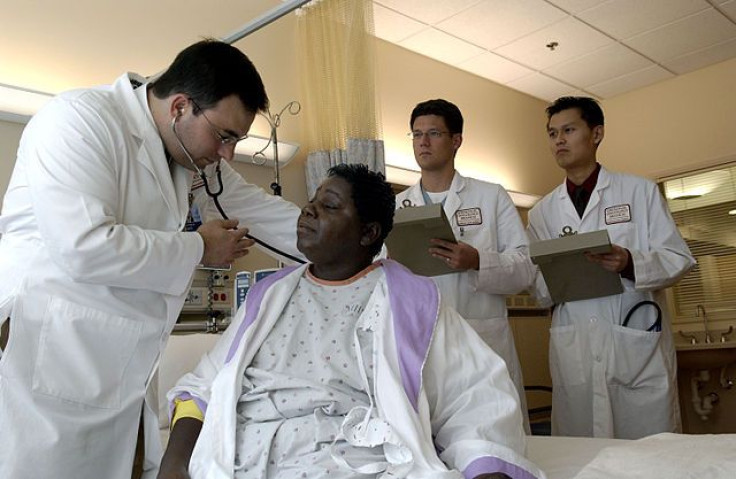Following A Heart Attack, Sticking With Medicines Improves Chances Of Survival

Dr. Niteesh K. Choudhry is on a mission and his goal is very simple: He wants people to take their medicine. “Patients who adhere to medications experience better outcomes than their non-adherent counterparts,” he wrote in a recent study published in the American Heart Journal.
There are many reasons a person may fail to take their daily pill, including simply forgetfulness, unwanted side effects, a negative attitude, or a high co-pay. The problem of failing to stick to a drug regimen becomes particularly nasty in the aftermath of a heart attack. To highlight the problem, Choudhry conducted a study to quantify the relationship between medication adherence and negative heart 'events' occurring after a heart attack. Who survives and who does not?
What is a Heart Attack?
When oxygen-carrying blood is suddenly prevented from flowing to a section of heart muscle, that muscle begins to die and the heart itself does not get necessary oxygen: this is a heart attack, also called a myocardial infarction (MI). In the U.S., heart attacks are among the leading causes of death for both men and women. They are caused by coronary heart disease, which occurs when a waxy substance called plaque builds up inside the coronary arteries. This condition of built-up plaque is known as atherosclerosis and it often takes place over many years. Eventually, the plaque ruptures inside an artery and causes a clot that blocks blood flow. If such a blockage isn't treated quickly, the heart muscle begins to die and eventually may cause an attack.
Each year, about 1.2 million Americans have heart attacks. Of those who die, about half die before they even reach the hospital --- within an hour of the first symptom. Many others, though, do survive and lead productive lives thereafter.
Following a heart attack, patients are often prescribed a confusing array of drugs, all of which their doctors describe as ‘important.’ Generally, they must fill a prescription for beta-blockers to slow their heart rate, statins to lower their cholesterol rate, and sometimes antihypertensives to decrease their blood pressure rate. Many people, despite the seriousness of their health issues, fail to stick with their medication regiment.
For his recent study conducted at Brigham and Women's Hospital in Boston, Choudhry and his team of researchers investigated the relationship between staying on the prescibed meds and negative coronary events following an MI. Because his team had discovered earlier that people who received medications for free were more likely to adhere to their drug schedule compared with those who had to purchase them with a co-pay, the team designed an experiment that would tease out medicine-taking behavior from financial concerns.
Staying Out of the Hospital
The researchers first created two groups of patients: those who received free prescriptions and those paid for their prescriptions. Then, they divided the patients who received free prescriptions into three sub-groups based on how often they took all of their medicines: at least 80 percent of the time, 60 to 79 percent of the time, or less than 60 percent of the time. What did they discover?
The participants who took their medicines most often were more likely to never be readmitted to the hospital for another heart attack or a stroke, chest pain, or heart failure when compared to either those who took their medications less often or those in the group with copays. (People with copays varied widely in how often they took their medications.) Those with the highest adherence levels, in fact, were found to be a full 24 percent more likely to avoid a return to the hospital.
“Achieving high levels of adherence to each and all guideline-recommended post-MI secondary prevention medication is associated with improved event-free survival,” wrote the researchers in their study. In short, it is best to take the meds, all the meds, after a heart attack and for those who experience side effects, a discussion with the doctor is in order.
Source: Choudhry NK, Glynn RJ, Avorn J, et al. Untangling the relationship between medication adherence and post-myocardial infarction outcomes (Medication Adherence and Clinical Outcomes). American Heart Journal. 2013.



























